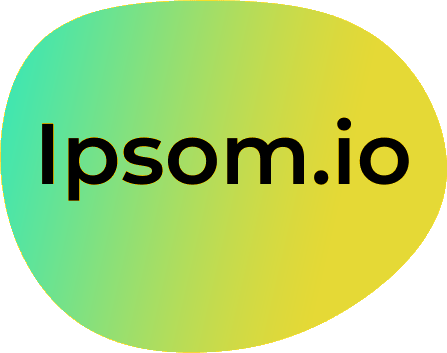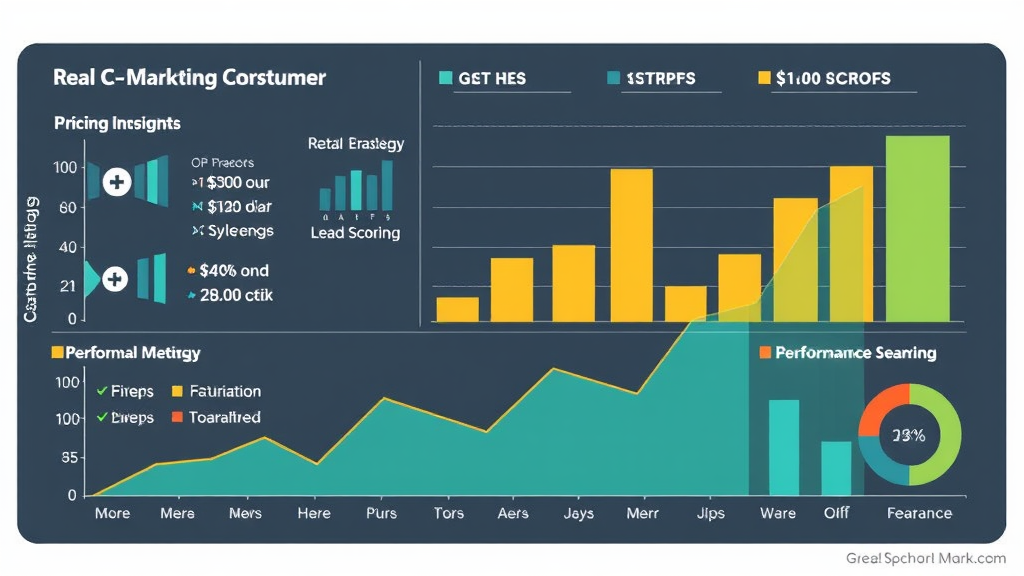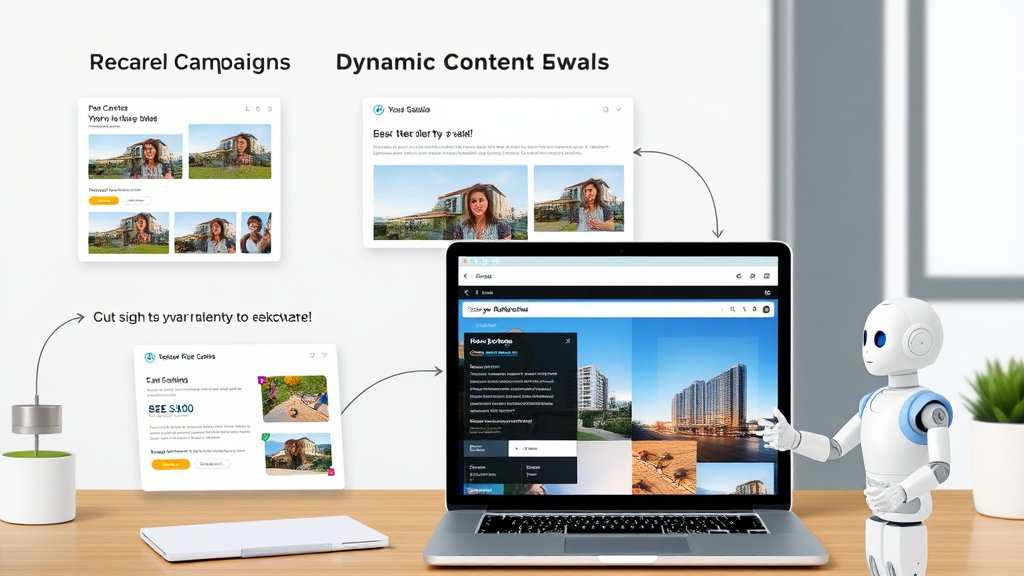In the competitive real estate market, leveraging marketing automation can significantly enhance efficiency, lead management, and client engagement. By automating repetitive tasks, real estate professionals can focus more on building relationships and closing deals. This blog explores the key aspects of real estate marketing automation and how it can transform your business.
Key Findings
-
Enhanced Lead Generation: Automation tools streamline the process of capturing and segmenting leads, ensuring that marketing efforts target the most promising prospects.
-
Improved Client Communication: Automated follow-ups and personalized messaging maintain consistent engagement with clients, fostering stronger relationships.
-
Time and Cost Efficiency: Automating routine tasks reduces manual labor, allowing agents to allocate resources more effectively and focus on high-value activities.
-
Data-Driven Decision Making: Marketing automation platforms provide valuable analytics, enabling real estate professionals to assess campaign performance and refine strategies accordingly.
-
Scalability and Growth: Integrated CRM systems support scalability by centralizing data and standardizing processes, facilitating seamless collaboration across teams and offices.
-
Personalized Client Experiences: Automation allows for tailored communication based on client preferences and behaviors, enhancing satisfaction and loyalty.
How Can Marketing Automation Enhance Lead Generation in Real Estate?
Marketing automation significantly enhances lead generation in real estate by streamlining processes, personalizing outreach, and ensuring timely follow-ups. By integrating various automation tools, real estate professionals can efficiently capture, nurture, and convert leads.
Lead Capture and Management
Implementing automated systems allows for the seamless collection and organization of lead information. By integrating Customer Relationship Management (CRM) systems with lead generation platforms, agents can automatically import leads from various sources, eliminating manual data entry and ensuring no potential client is overlooked.
Personalized Outreach and Nurturing
Marketing automation enables the creation of personalized email campaigns tailored to individual client preferences. By segmenting leads based on criteria such as location, property interests, or stage in the buying process, agents can send targeted communications that resonate with each prospect. Automated drip campaigns deliver relevant content over time, keeping leads engaged and moving them through the sales funnel.
Timely Follow-Ups and Engagement
Automated systems can monitor lead activities and trigger immediate responses when specific actions are taken, such as filling out a contact form or viewing a property listing. This ensures prompt engagement, which is crucial in maintaining interest and building trust with potential clients. Additionally, integrating chatbots and conversational AI on real estate websites provides instant responses to visitor inquiries, enhancing the user experience and capturing leads effectively.
Lead Scoring and Prioritization
Marketing automation tools can assign scores to leads based on their interactions and engagement levels. This process helps agents identify and prioritize high-quality leads who are more likely to convert, allowing for a more focused and efficient sales approach.
By leveraging marketing automation, real estate professionals can optimize their lead generation efforts, ensuring a more efficient and effective approach to converting prospects into clients.
External Sources: Learn More
What Are the Best Practices for Implementing Automated Client Communication?
Implementing automated client communication in real estate marketing can significantly enhance efficiency and client satisfaction. To ensure success, consider the following best practices:
1. Segment Your Client List
Organize clients into categories such as buyers, sellers, and leads. This segmentation allows for tailored communication strategies that address the specific needs of each group. For instance, buyers can receive new listings matching their preferences, while sellers get updates on market conditions.
2. Personalize Automated Messages
Utilize client data to personalize communications, making them feel more genuine. Incorporate details like the client's name, specific property interests, or recent interactions to enhance engagement. Personalized emails have been shown to have a 29% higher open rate.
3. Establish a Consistent Communication Schedule
Develop a regular cadence for automated messages to keep clients informed without overwhelming them. For example, send weekly updates to active buyers and monthly market reports to sellers. Consistency builds trust and keeps your services top-of-mind.
4. Integrate Automation with Your CRM
Ensure your automation tools are seamlessly integrated with your Customer Relationship Management (CRM) system. This integration allows for efficient tracking of client interactions and ensures that all communications are logged and accessible.
5. Monitor and Optimize Automation Workflows
Regularly review the performance of your automated communications. Analyze metrics such as open rates, click-through rates, and client feedback to identify areas for improvement. Continuous optimization ensures that your communication strategies remain effective and relevant.
By implementing these best practices, real estate professionals can enhance client engagement, build stronger relationships, and streamline their communication processes.
External Sources: Learn More
How Does Marketing Automation Improve Time and Cost Efficiency for Real Estate Professionals?
Marketing automation significantly enhances time and cost efficiency for real estate professionals by streamlining repetitive tasks, optimizing lead management, and ensuring consistent client communication.
Time-Saving Workflows
By automating routine activities such as scheduling social media posts, sending follow-up emails, and managing client reminders, agents can focus more on high-value tasks like client engagement and closing deals. For instance, integrating appointment scheduling software with a CRM allows clients to book viewings directly, eliminating the back-and-forth of manual coordination.
Cost-Effective Marketing
Automation tools enable targeted marketing efforts, reducing expenditures on broad, less effective campaigns. By focusing resources on prospects most likely to convert, agents can achieve higher returns on investment. Additionally, automating tasks like lead qualification and follow-ups decreases the need for extensive administrative support, leading to further cost savings.
Enhanced Lead Management
Automated systems efficiently capture and nurture leads from various sources, such as websites and social media platforms. These tools can segment leads based on behavior and preferences, allowing for personalized communication that increases engagement and conversion rates. For example, implementing automated email campaigns tailored to specific client interests can significantly improve lead conversion.
Consistent Client Communication
Maintaining regular and personalized communication is crucial in real estate. Automation ensures timely follow-ups, appointment reminders, and updates, enhancing client satisfaction and trust. For example, using automated email sequences to send property recommendations or market updates keeps clients informed and engaged without manual effort.
By integrating marketing automation into their operations, real estate professionals can achieve greater efficiency, reduce costs, and provide a more personalized experience for their clients.
External Sources: Learn More
What Role Does Data Analytics Play in Real Estate Marketing Automation?
Data analytics is integral to real estate marketing automation, enabling professionals to make informed decisions, personalize client interactions, and optimize marketing strategies.
Enhanced Customer Insights: By analyzing data from various sources, including online interactions and demographic patterns, real estate companies can develop a comprehensive understanding of potential buyers' preferences. This insight allows for the creation of personalized campaigns that resonate with specific segments, such as first-time homebuyers or investors.
Optimized Pricing Strategies: Data analytics tools assess market trends, compare property features, and evaluate historical pricing data to help agents set competitive yet profitable listing prices. This strategic pricing maximizes the chances of attracting buyers and closing sales efficiently.
Improved Lead Generation and Scoring: By analyzing data from multiple touchpoints, such as website interactions and social media engagement, real estate companies can assign scores to leads, prioritizing those with a higher likelihood of conversion. This targeted approach ensures more efficient use of marketing resources.
Predictive Analytics for Market Forecasting: Leveraging historical data and predictive models, marketers can forecast trends and buyer behavior. For instance, identifying an influx of young families into a suburban neighborhood might indicate a shift in property features that are in demand, such as open-plan kitchens or proximity to schools. Real estate firms can adjust their listings to showcase properties that align with these emerging preferences.
Performance Tracking and ROI Measurement: Data analytics provides tools to measure the effectiveness of various marketing strategies. By tracking key performance indicators (KPIs) such as website traffic, lead conversion rates, and engagement metrics on social media, agents can see what’s working and adjust their tactics accordingly.
By integrating data analytics into real estate marketing automation, professionals can enhance customer engagement, optimize pricing, and improve overall marketing efficiency.
External Sources: Learn More
How Can CRM Integration Support Scalability and Growth in Real Estate Businesses?
Integrating a Customer Relationship Management (CRM) system into a real estate business is pivotal for achieving scalability and fostering growth. A well-integrated CRM streamlines operations, enhances client relationships, and provides data-driven insights, all of which are essential for expanding a real estate enterprise.
Centralized Data Management: A CRM consolidates all client and property information into a single platform, ensuring data accuracy and accessibility. This centralization reduces manual data entry, minimizes errors, and allows real estate professionals to efficiently manage increasing volumes of information as the business grows.
Automated Workflows: By automating routine tasks such as lead follow-ups, appointment scheduling, and email communications, a CRM frees up valuable time for agents. This automation supports scalability by enabling the team to handle a larger client base without compromising service quality.
Enhanced Lead Management: CRM systems offer tools for capturing, tracking, and prioritizing leads effectively. Features like lead scoring and segmentation allow agents to focus on high-potential prospects, optimizing conversion rates and supporting business growth.
Scalability and Flexibility: A scalable CRM adapts to the evolving needs of a growing real estate business. It accommodates an increasing number of users, properties, and data without compromising performance. Additionally, modular architectures allow for the addition of new features and integrations as required, ensuring the CRM evolves alongside the business.
Data-Driven Decision Making: Integrated CRM systems provide robust analytics and reporting tools, offering insights into sales trends, client behaviors, and operational performance. These data-driven insights enable informed decision-making, helping to identify growth opportunities and refine business strategies.
In summary, CRM integration is a cornerstone for scalability and growth in real estate businesses. It streamlines operations, enhances client engagement, and provides the flexibility needed to adapt to an expanding market, positioning the business for sustained success.
External Sources: Learn More
What Strategies Ensure Personalized Client Experiences Through Automation?
Implementing personalized client experiences through automation in real estate marketing involves several key strategies:
1. Personalized Email Campaigns
Automated email sequences tailored to individual client preferences can significantly enhance engagement. By segmenting leads based on criteria such as location, budget, and property preferences, you can deliver relevant content that resonates with each recipient. Incorporating dynamic content, like personalized property recommendations or market insights, further increases the effectiveness of these campaigns.
2. Dynamic Content Utilization
Employing dynamic content in your marketing materials allows for real-time customization based on user behavior and demographics. This approach can be applied to emails, landing pages, and property listings, ensuring that clients receive information pertinent to their interests. For instance, showcasing properties aligned with a client's previous searches can enhance their engagement and satisfaction.
3. CRM Integration
Integrating Customer Relationship Management (CRM) systems with marketing automation tools provides a comprehensive view of each client's journey. This integration enables real-time data synchronization, ensuring that marketing efforts are aligned with sales activities. It also facilitates personalized follow-ups and targeted campaigns based on client interactions and preferences.
4. Automated Lead Scoring and Segmentation
Implementing automated lead scoring helps prioritize follow-ups with high-potential clients, ensuring that efforts are focused on the most promising opportunities. Additionally, segmenting leads based on behavior and preferences allows for the delivery of personalized messages that cater to specific client needs.
5. AI-Powered Chatbots
Integrating AI-driven chatbots on your website provides instant responses to client inquiries, enhancing engagement and satisfaction. These chatbots can handle common questions, schedule property viewings, and gather essential information about potential clients, allowing for more efficient lead qualification and nurturing.
6. Virtual Tours and Augmented Reality
Enhancing property listings with AI-driven virtual tours and augmented reality experiences allows potential buyers to explore properties remotely. This immersive approach not only saves time but also attracts tech-savvy clients seeking interactive experiences.
By implementing these strategies, real estate professionals can create personalized client experiences through automation, leading to increased engagement, satisfaction, and ultimately, higher conversion rates.
External Sources: Learn More
FAQ – Frequently Asked Questions
What is real estate marketing automation?
Real estate marketing automation involves using software to streamline and automate marketing tasks, enhancing efficiency and client engagement. Key components include:
-
Customer Relationship Management (CRM) Systems: Centralize client information, track interactions, and manage leads effectively.
-
Email Marketing Automation: Send personalized emails, newsletters, and property updates based on client actions.
-
Social Media Management: Schedule and publish posts across platforms, ensuring consistent online presence.
-
Lead Generation Tools: Automate lead capture from websites or social media, send personalized follow-ups, and segment leads for targeted campaigns.
By integrating these tools, real estate professionals can enhance lead generation, improve client communication, and optimize marketing campaigns.
How does marketing automation improve lead management?
Marketing automation enhances lead management by automating repetitive tasks, enabling personalized communication, and providing valuable insights. It streamlines lead nurturing through automated emails and personalized content, ensuring timely follow-ups and reducing manual effort. Lead scoring capabilities prioritize high-quality leads, allowing sales teams to focus on prospects more likely to convert. Additionally, marketing automation fosters better alignment between marketing and sales teams by providing a unified view of customer interactions, leading to more effective collaboration and increased conversion rates.
Can automation tools integrate with existing CRM systems?
Yes, automation tools can integrate with existing CRM systems. Platforms like Zapier and Mulesoft facilitate connections between various applications and CRMs, enabling automated workflows. Many CRMs, such as Pipedrive and Zendesk Sell, offer native integrations with numerous third-party apps, enhancing functionality. Additionally, tools like Docparser allow for automated data extraction from documents directly into CRM platforms.
What are the common challenges in implementing marketing automation?
Implementing marketing automation can present several challenges:
-
Lack of Clear Strategy: Without a well-defined plan aligned with business goals, automation efforts may become disjointed and ineffective.
-
Poor Data Quality and Integration: Inaccurate or siloed data can lead to flawed insights and hinder the effectiveness of automated campaigns.
-
Overemphasis on Automation, Neglecting Personalization: Relying too heavily on automation without personalizing content can result in impersonal interactions that fail to engage customers.
-
Inadequate Training and Skill Gaps: A lack of expertise in using automation tools can lead to misconfigured workflows and underutilization of features.
-
Lack of Continuous Monitoring and Optimization: Failing to regularly review and refine automation processes can cause campaigns to become less effective over time.
-
Compliance and Privacy Concerns: Automated processes must adhere to data protection regulations to avoid legal issues and maintain customer trust.
-
Complex Implementation: Integrating automation tools into existing systems can be time-consuming and technically challenging.
-
Lack of Alignment Between Sales and Marketing: Disjointed efforts between teams can lead to inconsistent messaging and missed opportunities.
-
Difficulty Measuring ROI and Effectiveness: Quantifying the impact of automation on business outcomes can be complex, making it hard to justify investments.
-
Overcomplicating Automation: Implementing overly complex automation workflows can lead to operational inefficiencies and confusion.
Addressing these challenges requires a strategic approach, focusing on clear objectives, data quality, personalization, team training, continuous optimization, compliance, and cross-departmental collaboration.
How does marketing automation impact client relationships?
Marketing automation enhances client relationships by enabling personalized communication, timely engagement, and efficient management of customer interactions. By automating tasks such as email campaigns, follow-ups, and data analysis, businesses can deliver relevant content tailored to individual client preferences, fostering trust and loyalty. Additionally, automation facilitates prompt responses to client inquiries and behaviors, ensuring consistent and meaningful interactions throughout the customer journey.
Are there affordable marketing automation solutions for small real estate agencies?
Yes, there are several affordable marketing automation solutions tailored for small real estate agencies. Here are some options:
1. Wise Agent
An all-in-one CRM offering lead automation, transaction management, and marketing tools.
-
Pricing: Starts at $49/month, with a 14-day free trial.
-
Features: AI-powered lead nurturing, customizable landing pages, and 24/7 customer support.
2. HubSpot CRM
A free CRM with robust marketing tools suitable for real estate professionals.
-
Pricing: Free plan available; paid plans start at $15/user/month.
-
Features: Email marketing, SEO tools, ad management, and content management.
3. Bitrix24
An all-in-one CRM solution with a range of functionalities, including lead management and client service.
-
Pricing: Free plan available; paid plans start at $49/month for up to 5 users.
-
Features: Team communication tools, customizable triggers for automations, AI-powered assistant, and HD video calls.
4. Zoho CRM
An affordable, easy-to-use CRM with a broad set of customization options and advanced features.
-
Pricing: Paid plans start from $14/user/month.
-
Features: Lead scoring, sales forecasting, email marketing, and in-depth reports.
5. LionDesk
A CRM designed for real estate agents, offering AI lead follow-up technology and marketing automation.
-
Pricing: Plans start at $25/month, with a 30-day free trial.
-
Features: Video email and texting, scheduled emails or texts, contact management, and enhanced drip campaigns.
These platforms provide cost-effective solutions to automate marketing efforts, manage leads, and enhance client engagement for small real estate agencies.







